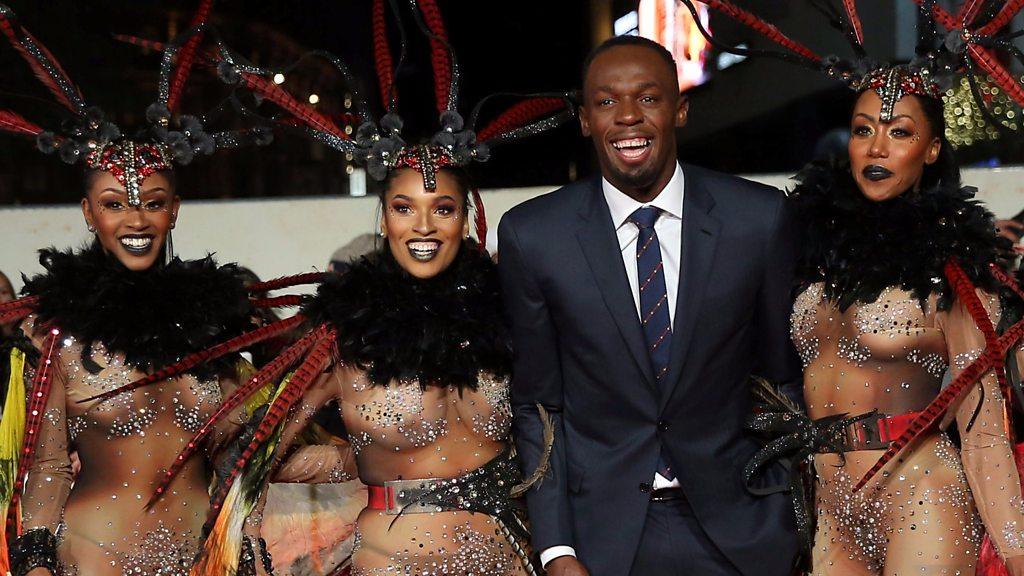Sean Paul: Back with a bang, bang, bang
- Published
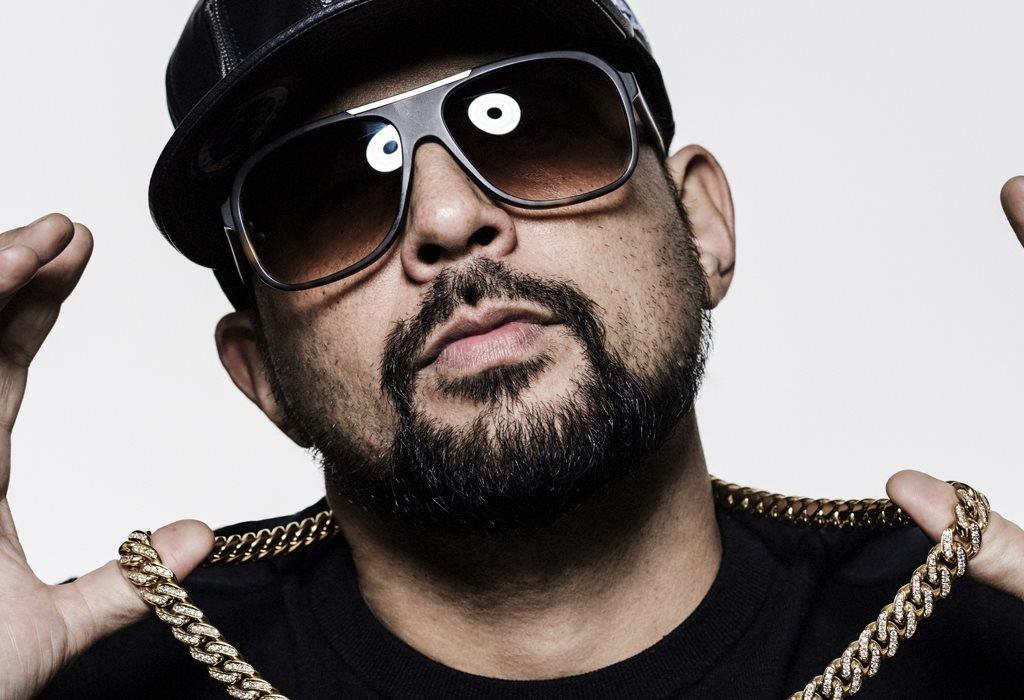
Though raised in Jamaica, Sean Paul has British roots - his grandmother was born in Rugby
Dancehall star Sean Paul talks to the BBC about topping the charts, becoming a father and living next door to Usain Bolt.
Sean Paul is not what you would call an elusive pop star. At times, in fact, it seems he'll work with anyone who gets hold of his WhatsApp.
So far this year he has scored hits with Sia and Little Mix, while his collaboration with Clean Bandit, Rockabye, is currently enjoying its fourth week at number one.
"I work a lot and I got in the habit of doing a lot of songs," the star admits. "I feel they're all quality, but some of them don't get known because there's so much music out there.
"So when three pop off in one year, that's an amazing feeling."
It's a big turn-around for the Jamaican musician and producer, who had all but disappeared after his first wave of fame 14 years ago.
Back then, he brought the booty-bouncing rhythms of dancehall to the mainstream, thanks to his multi-platinum, Grammy-winning album Dutty Rock and singles like Get Busy, Gimme the Light and the Beyonce-featuring Baby Boy.
After a period as an independent artist he recently signed to Island Records, where - armed with his enjoyably ridiculous catchphrase "Bidda bang, bang, bang" - he is prepared to exploit a new explosion of interest in dancehall.
"In dancehall sometimes, people beatbox or drum on the desk," he explains. "'Bidda bang bang bang' is basically a drum roll: 'Pr-rap-rap-rap, bang, bang, bang.'"
With that conundrum finally cleared up, the 43-year-old sat down to chat about becoming a father, his favourite collaborators and what it's like to live next door to Usain Bolt.
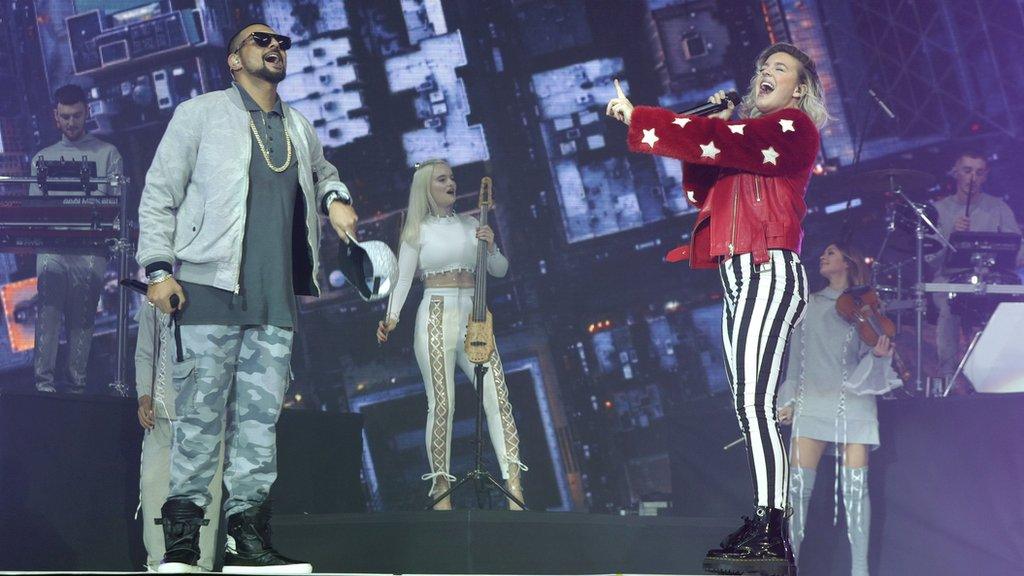
The star performed Rockabye with Clean Bandit at this month's Jingle Bell Ball
Clean Bandit's Rockabye is about a single mother struggling to provide for her child. What was it about the song that spoke to you?
It was just very close to home. My mum was a single parent [because] my father went to prison for a period of time, about six years. So when they played me the song, I was just immediately there.
I believe it was your mum who introduced you to Sia?
Yeah! I'd heard the song Chandelier but I didn't know who sang it - and my mum went through it with me, telling me all about her. I said, 'Mum, you're a fan!' The last time she'd been a fan of someone was Celine Dion.
And then you ended up on Cheap Thrills, which was Sia's first US number one.
I was amazed because I could have sworn that Chandelier went to number one. To me, that's what a number one song sounds like.
I never knew [Cheap Thrills] would be a hit. When I heard it, I liked it but I thought, "Oh, this is just a cut off of her album." I was surprised when it became a single.
What do you make of Sia's image?
Her whole stance on not wanting to be physically seen, with the wig and stuff, is amazing to me because, back in 1994, I had a concept where I would put songs out and no one would know who I was.
Why was that?
Because being an uptown person in Jamaica, you didn't really do dancehall music. It was a taboo.
How come?
It's music that came from the ghetto. I came from a middle-class family, so everybody was struggling to be better and affluent.
Dancehall was seen as, "Ya chat bad boy." You know, you're talking bad but you learned proper English in school. Making music was looked at as almost giving up.
Highlights of Sean Paul's set at 1Xtra Live 2016
You've represented dancehall and reggae for almost two decades. Do you ever get any flak for collaborating with pop acts?
Some, yeah, but I think of it like this: There's scrimmage football that you play on the corner with your friends. You don't have to go and train every day and you don't have to watch your alcohol intake.
It's fun, but I want to play the international ball game. I want to make sure I'm heard not only in Jamaica but everywhere else.
Like you said, I've been in this for two decades so I think the music should evolve and sound fresh. That's really all I'm doing.
There will be songs that are hardcore, more authentic dancehall, and there will be songs that stretch that limit.
And if a genre doesn't evolve and change, then it dies.
You can't continue to do the same thing over and over and over again. That's probably why nursery rhymes are just nursery rhymes. They just stay there.
You've just done a song called Rockabye though…
Yeah, I should probably start a trend now and do them all!
Well, you do have a baby on the way, so it makes sense. Have you started reading the books and taking antenatal classes?
We haven't been doing those. My wife's been doing a lot of preparation and warning me… but I've always been like, "Ach, I'll be a great dad."
Then there's times when I'm talking out loud and I'm realising that I'm going to have to clean that filthy mouth out!
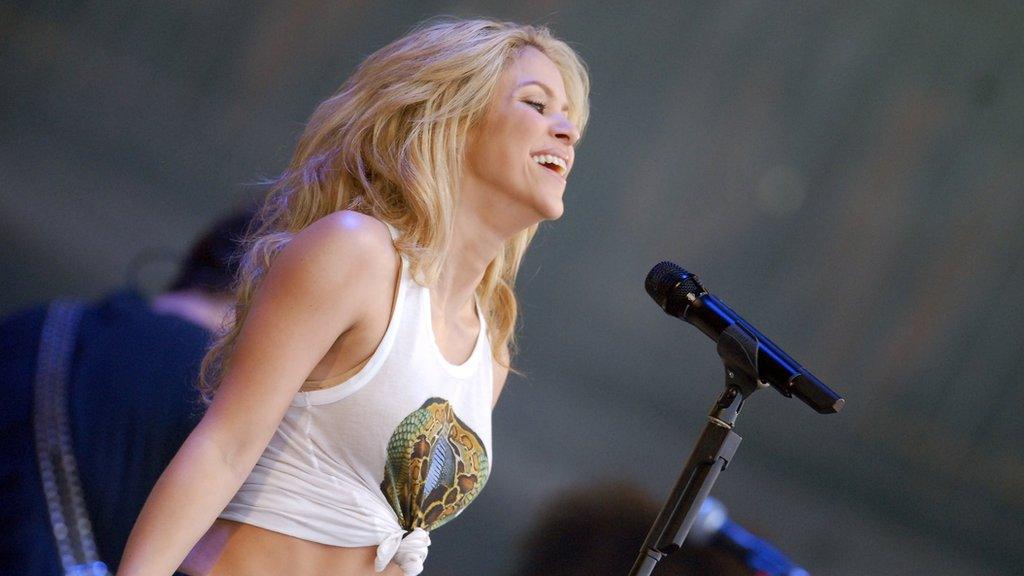
Sean Paul on Shakira: 'I appreciate where she's coming from'
Dancehall has had a resurgence in the last two years - with acts like Major Lazer and Justin Bieber appropriating the sounds and rhythms of Jamaica. What do you make of that?
A lot of songs I hear on the radio have a dancehall twist, which is an amazing feeling to me. This is like a renewal. I just did a song with Shakira and she is basically doing a lot of dancehall also.
What's she like in the studio?
She's very meticulous. We've been back and forth on WhatsApp. She'll be like, "I think I should do this part in Spanish" or "Does this lyric work?"
In my part of the industry, there's a lot of free-styling. If you spit the fire quick then people are amazed. But to go over it and over it?
I thought it was cool to know someone cares that much. Beyonce was like that also - very meticulous and very focused.
At the time of writing, you're in the UK for the premiere of Usain Bolt documentary I Am Bolt. I hear you live next door to him in Jamaica. Is he a good neighbour?
I've never asked him for a cup of sugar but I'm pretty sure there'd be no problem! He's a hero of mine, bro. A hero of the entire country. Not just because of his unique physical ability, but also his personality.
He could be like [boxer] Floyd Mayweather - a champ but a chump at the same time. But Usain Bolt is just like a ray of light when he comes in the room.
You know what it's like to be a professional athlete, having played water polo for Jamaica.
Not on Bolt's level but, for sure, I know what training is like.
When was your last competitive match?
2006 was the last time. I remember I had six weeks to train and it almost killed me. Physical training two times a day and then gym workouts.
I felt like how Bolt at the end of his movie: "Now it's over, I can go and eat fried chicken and stay up late!"
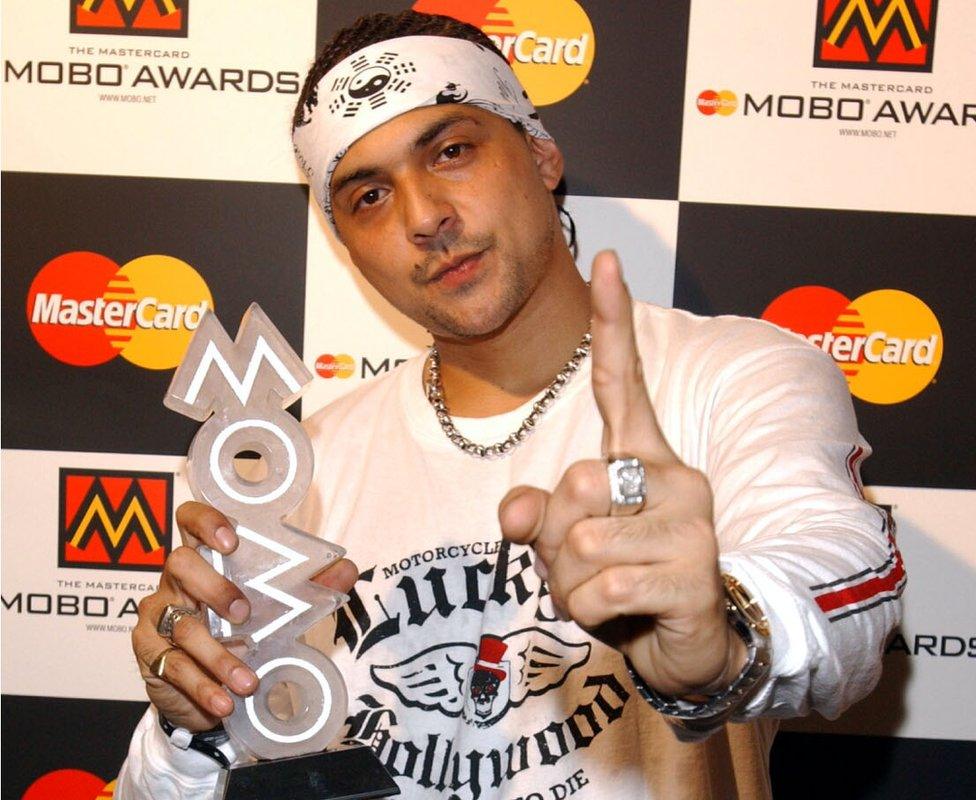
Sean Paul won the best reggae category at the 2002 Mobos
When one talks to athletes, they say they love the race but hate the training. Is there an equivalent in music?
Doing this interview! I'm joking, I'm joking - but sometimes promo is monotonous. You have to keep in mind there's so much music out there and you need to be grateful when you have people's ears.
With that in mind, I'll wrap up with my most original and thought-provoking question: Will you be putting out an album next year?
Yes sir! Not sure what it's called, as usual, but it features people like David Guetta, Shakira and Ellie Goulding. Just recently, me and Major Lazer have been conspiring to do something new.
So that might end up on the album. Just look out for the greatness next year!

Follow us on Facebook, external, on Twitter @BBCNewsEnts, external, or on Instagram at bbcnewsents, external. If you have a story suggestion email entertainment.news@bbc.co.uk, external.

- Published2 December 2016
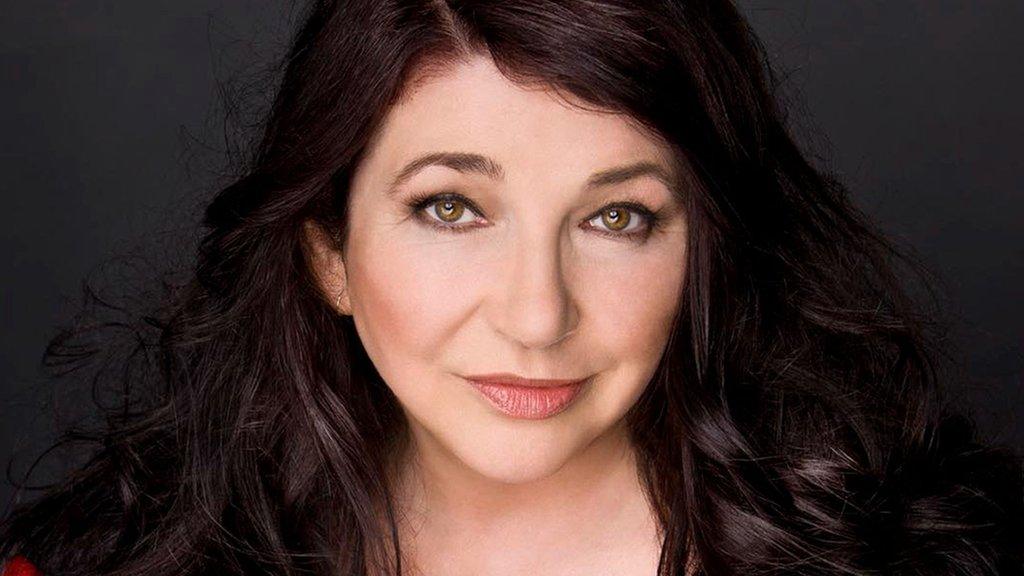
- Published29 November 2016
